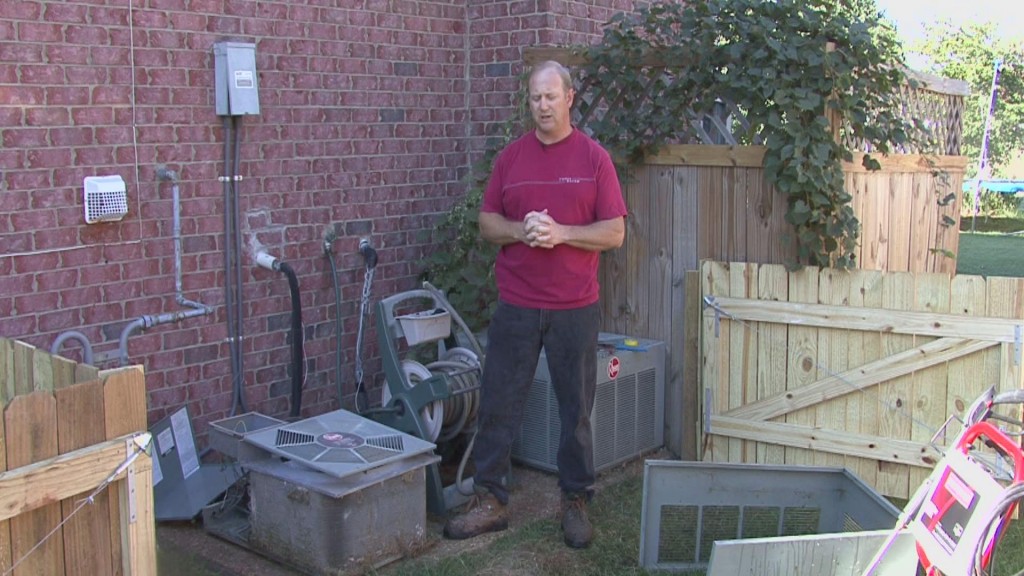XW9DER24FJGB

Suzuki v. Munroe, a judgment released yesterday by the BC Supreme Court, is the kind of case that begins to read like many other unfortunate squabbles. You half expect it to break out into Denningesque prose. Homeowner installs central air conditioning; neighbour complains about the noise. Homeowner installs surveillance camera that creeps into neighbour’s yard; neighbour complains about the invasion of privacy. It’s the kind of case you expect to end with the judge declining to intervene and reprimanding both parties for refusing to play nicely and wasting the Court’s time. Except not.
Like many Canadians getting accustomed to the effects of global warming, Janice and Richard Munroe found their poorly ventilated Coquitlam home to be uncomfortable in warm weather. In 2006, they purchased and installed a central air conditioning unit outside their home, which happened to be just a few feet away from neighbouring May and Kazuo Suzuki. The Suzukis, who rely on open windows for cooling and ventilation, returned home one Sunday evening in June only to learn that their pesky neighbours had put in a new air conditioning unit. The resulting noise, which the Suzukis described as sounding “like a lawnmower”, kept Mrs. Suzuki awake all night. Mr. Suzuki retreated to a corner of his basement.
The very next day, Mrs. Suzuki complained to the City of Coquitlam about the noise. She also says she negotiated a ceasefire agreement with the Munroes’ son (which the Munroes deny), pursuant to which the Munroes agreed not to operate the AC after 9pm. If it ever existed, the truce didn’t long. A few days later, the AC started running until “nearly midnight” and was cranked up again as early as 5:30 in the morning. None of this mattered as far as the City of Coquitlam’s bylaw inspector was concerned, though. The inspector couldn’t find evidence of any bylaw infraction, although, as the Court pointed out, it wasn’t obvious the air conditioner was turned on when the inspector dropped by for a visit.
It didn’t take long before the Suzukis and the Munroes lawyered up. Nuisance claims were filed. Experts were retained. Psychological injury was claimed. Injunctions were sought and obtained.
Oh, and then there was the issue of the Munroes’ surveillance camera. Mounted on the side of their home between the two houses, its view took into a portion of the Suzukis’ entrance, front yard and driveway. In response, the Suzukis amended their Statement of Claim to add a claim of nuisance in relation to the surveillance camera.
After going through the law of nuisance and reviewing the evidence of chronic stress disorder, acoustic decibel levels, and the standard fare of “he said – she said”, Mr. Justice Verhoeven referenced what might be described as the Law of Neighbourliness: “The Munroes did not consult with the Suzukis prior to installing the air conditioning unit just a few feet away from the Suzukis’ property. This would have been neighbourly and prudent, but they were not obliged to do so.”
But, after considering the “social utility” of air conditioners and the lack of evidence about the Suzukis being “abnormally sensitive individuals”, Justice Verhoeven concluded that the noise caused by the Munroes’ air conditioner was indeed unreasonable by objective standards. Nuisance established.
As for the surveillance camera, the Court had no doubt that it was an unreasonable interference with the use and enjoyment of the Suzukis’ property, especially since there was no reason why the Munroes couldn’t redirect their camera to avoid capturing the neighbouring property. The resulting inference: the Munroes installed the camera and refused to redirect it in order to provoke and annoy the Suzukis. Nuisance established.
The result: $4,000 to Mrs. Suzuki and $2,000 to Mr. Suzuki (who was less affected psychologically by the nuisances than his wife). And an injunction: the Munroes may not operate their air conditioner such that it causes sound beyond 55 decibels between 7am and 10pm, and 45 decibels during the rest of the day, “measured at any point along the Munroe-Suzuki property line”.
The Munroes are also prohibited from using a surveillance camera that monitors any part of the Suzukis’ property.
And the tell-tale sign that these neighbours don’t really get along: the Court required each of the Munroes to execute a statutory declaration to be delivered to the Suzukis confirming compliance with the order prohibiting use of the surveillance camera.
We shudder to think of the legal fees billed on this file. Read the entire judgment (and find coordinates for fun with Google Street View) here: http://www.courts.gov.bc.ca/jdb-txt/SC/09/14/2009BCSC1403.htm
